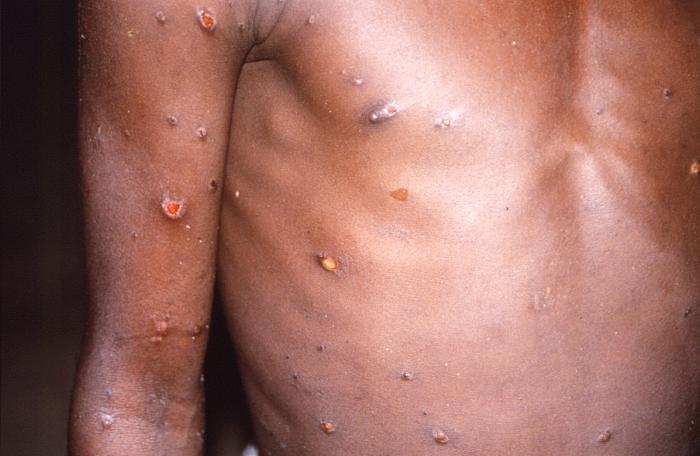An mpox outbreak in the Democratic Republic of the Congo (DRC) that began in 2023 has expanded to 23 of the country's 26 provinces, including Kinshasa, with children the most affected group, officials from the World Health Organization (WHO) said today at a media briefing in Geneva.
Health officials said the outbreak is occurring alongside an alarming humanitarian crisis, which includes the world's second biggest refugee displacement and the effects of severe flooding.
The DRC is also battling cholera, measles, anthrax, and plague outbreaks. WHO officials also said that, in most parts of the country, especially the east, residents have been caught in the crossfire of violent clashes, overwhelming hospitals with injured people.
Children make up nearly two thirds of cases
The mpox outbreak involves a different clade of the virus than the one circulating globally. The clade 1 virus in the DRC is known to be more virulent, with a case-fatality rate (CFR) as high as 10%. The DRC's outbreak is also notable because it is the first outbreak involving clade 1 that has involved some sexual spread, including heterosexual transmission.
So far the DRC has reported 3,941 suspected mpox cases this year, 271 of them fatal, for a CRF of 7%—much higher than the global CFR of less than 0.2%. Only 389 of the DRC cases have been lab-confirmed, which the WHO said points to diagnostic challenges in the country.
Two thirds of the mpox cases have been reported in children, with a 10% CFR in infants and young children. The WHO added that the proportion of deaths is rising.
Gene deletions pose testing challenges
The WHO said the accelerating geographic expansion poses a threat to neighboring countries as well as the wider global community. So far, no cases of the clade 1 virus circulating in the DRC have been reported outside the country.
The Republic of Congo recently reported its first mpox cases, though it isn't clear what strain is involved.
The WHO noted that the emergence of gene deletions may affect the ability of other countries to detect imported cases.
In a recent Eurosurveillance report, researchers noted the problems with test reliability in identifying the DRC strain and raised the possibility that at least two outbreaks are underway in the DRC.




















